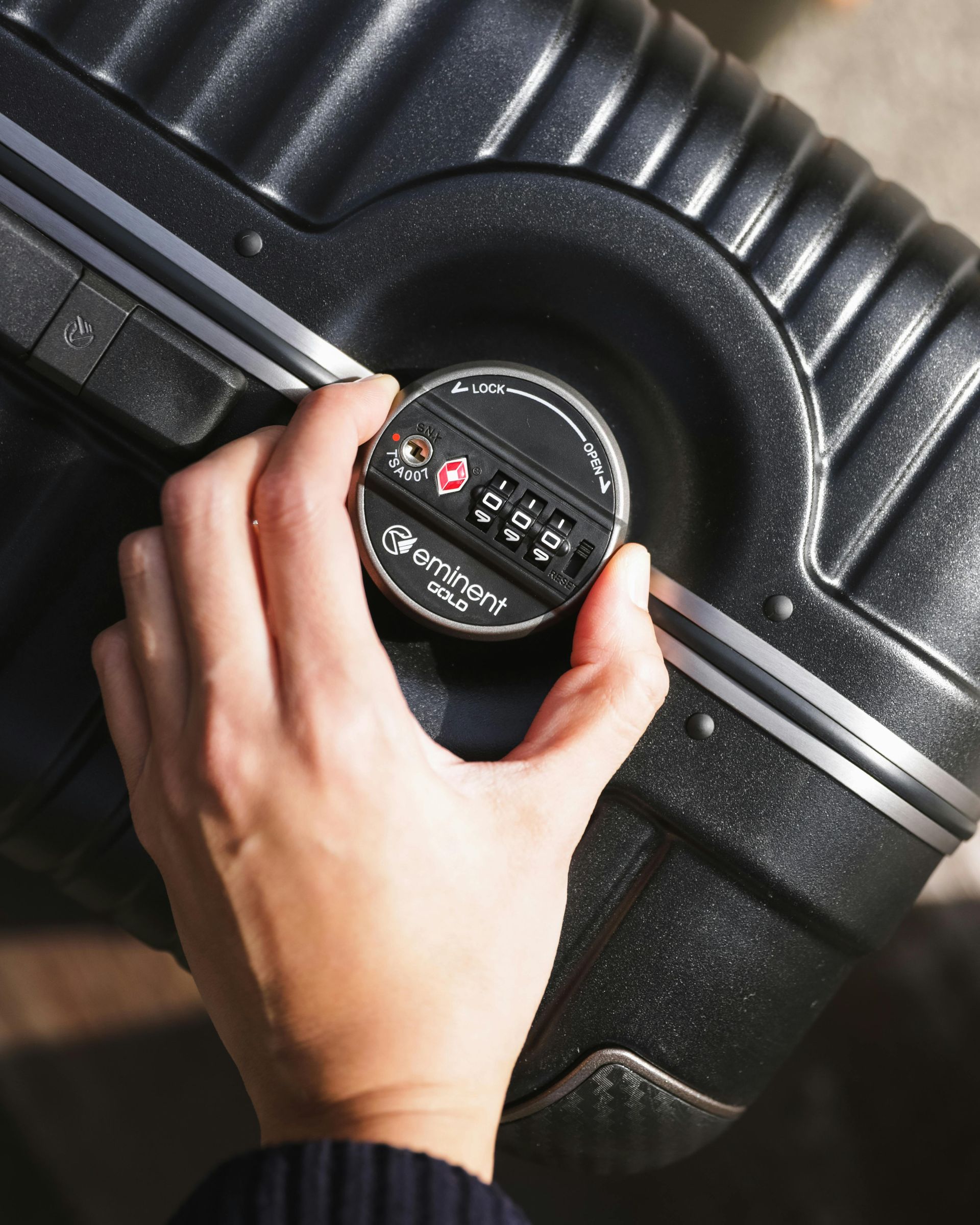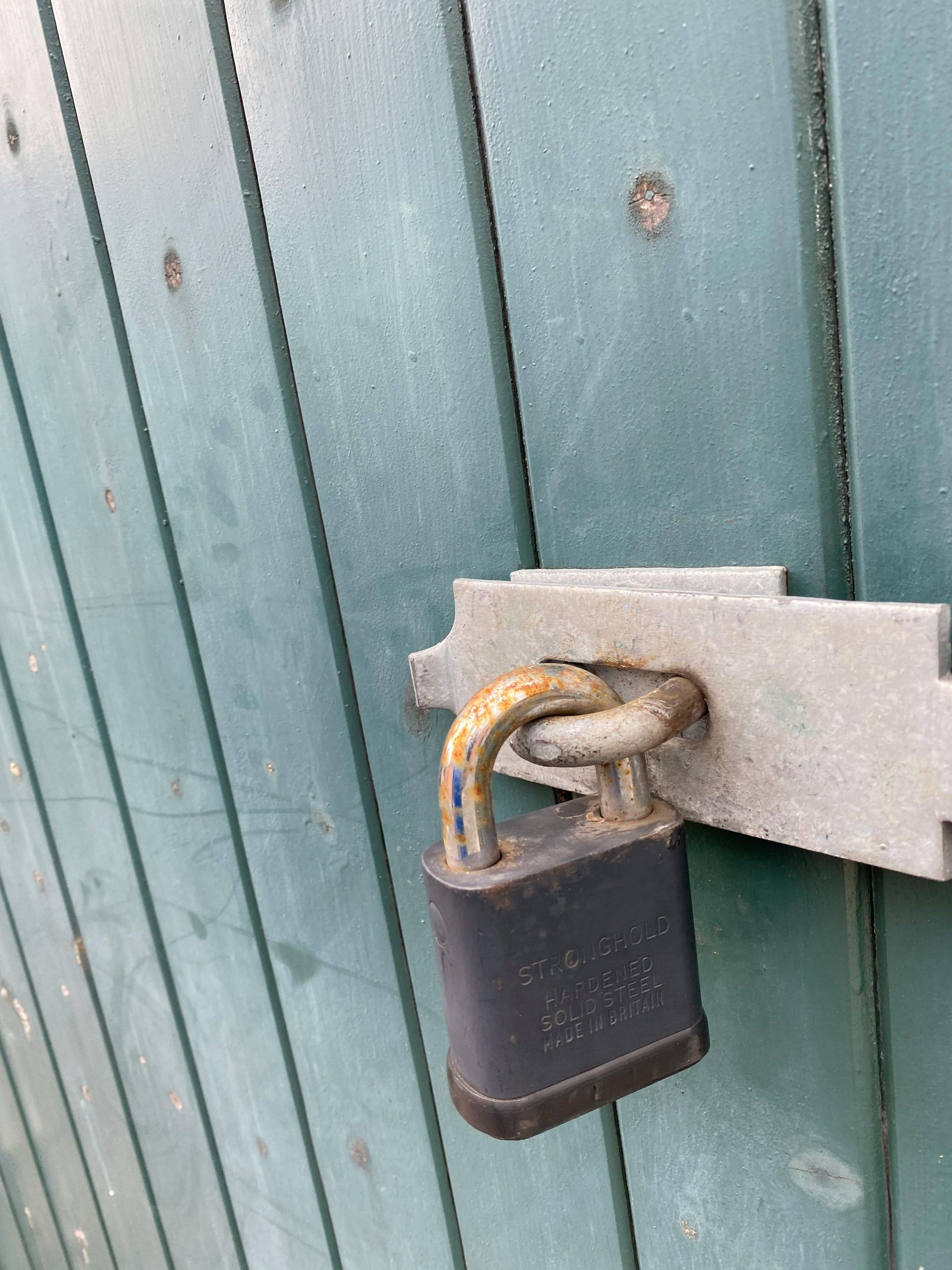How to remove super glue from a lock
July 30, 2025
Do you have superglue in your lock? Need to remove it? We can help.
How To Open A Superglued Lock
Acetone can be effective in softening and dissolving superglue, but it should be used with caution when attempting to remove superglue from a lock. While acetone can help break down the adhesive properties of the superglue, it can also damage certain materials commonly found in locks, such as plastic or rubber components. We advise using the solution only as a last resort, always call a professional locksmith when you can.
If you decide to use acetone to remove superglue from a lock, here are some important considerations:
- Test in an inconspicuous area: Before applying acetone directly to the lock, test it on a small, inconspicuous area to ensure that it does not cause any damage to the lock's finish or components.
- Use sparingly: Apply acetone sparingly to a cotton swab or cotton ball and gently dab it onto the affected area of the lock. Avoid excessive application, as acetone can potentially cause damage if it comes into contact with certain materials.
- Be patient: Allow the acetone to penetrate the superglue and soften it before attempting to remove the glue. This may take several minutes or longer depending on the thickness of the glue and the type of lock.
- Use caution around plastic or rubber parts: Acetone can damage or degrade plastic or rubber components commonly found in locks, such as gaskets or seals. Exercise caution to avoid prolonged exposure of these materials to acetone.
- Seek professional assistance if uncertain: If you are unsure about using acetone or if the superglue is difficult to remove, it is advisable to seek assistance from a professional locksmith. They have the expertise and specialized tools to safely remove the superglue without causing damage to the lock.
In summary, while acetone can be effective in removing superglue from a lock, it should be used cautiously and with care to avoid causing damage to the lock's components. If in doubt, it's best to seek assistance from a professional locksmith.
There are a few extra steps you can take to ensure you extract the best out of a bad situation.
- Avoid Attempting to Force the Lock: Attempting to force the lock open using excessive force or by trying to insert a key by force can worsen the situation by causing damage to the lock mechanism or key. This can make it more difficult and costly to repair the lock.
- Contact a Professional Locksmith: The most effective course of action is to contact a professional locksmith who has the expertise and tools to safely remove the superglue from the lock and restore its functionality. Attempting to remove the glue yourself using household solvents or tools can further damage the lock and may compromise its security.
- Document the Incident: If you suspect that the supergluing of your lock was a deliberate act of vandalism or tampering, consider documenting the incident by taking photographs of the affected lock and any surrounding evidence. This documentation may be useful if you decide to file a police report or insurance claim.
- Assess Security Risks: While waiting for the locksmith to arrive, take steps to ensure the security of your property. Depending on the severity of the situation and the accessibility of alternative entry points, you may need to temporarily secure the premises using additional locks or security measures.
- Consider Upgrading Security: In cases where the lock has been tampered with maliciously, it may be prudent to consider upgrading the security of your property by installing more robust locks or additional security features. A professional locksmith can provide recommendations based on your specific security needs and budget.
By following these steps and seeking assistance from a qualified locksmith, you can address the issue of a superglued lock efficiently and effectively, restoring security to your property and minimizing the risk of further damage or security breaches.
Why would someone put glue in a lock?
- Vandalism: One common reason is vandalism. Mischievous individuals may pour glue or adhesive substances into locks as a form of vandalism to cause inconvenience, damage, or frustration to property owners or occupants.
- Burglary Attempt: In some cases, criminals may attempt to disable locks by inserting glue to prevent them from functioning properly. This could be part of a larger burglary attempt where the perpetrator seeks to gain unauthorized access to the property.
- Personal Vendetta: In rare instances, someone with a personal vendetta against a property owner or occupant may resort to sabotaging locks by using glue. This could be an act of revenge or retaliation aimed at causing distress or inconvenience to the target.
Regardless of the motive, tampering with locks in this manner is illegal and can result in property damage, security risks, and potential legal consequences for the perpetrator. If you encounter a lock that has been tampered with, it's important to contact a professional locksmith to assess the situation and restore security.
How superglue acts as an effective lock disruptor
Superglue, or cyanoacrylate adhesive, can act as an effective lock disruptor in both cylinder locks and mortice locks, albeit through slightly different mechanisms:
In Cylinder Locks:
Superglue can be injected into the keyhole of a cylinder lock, where it quickly spreads and hardens upon contact with air. Once the glue hardens, it forms a solid mass inside the lock cylinder, effectively immobilizing the pins or tumblers that are essential for the lock's operation. This immobilization prevents the lock from turning even when a correct key is inserted, rendering the lock unusable.
Cylinder locks rely on precise alignment of internal components, such as driver pins and key pins, to allow the lock to rotate and open. Superglue disrupts this alignment by adhering to the pins and freezing them in place, effectively jamming the lock mechanism. As a result, even if the correct key is inserted, it cannot lift the pins to the correct height, preventing the lock from opening.
In Mortice Locks:
Mortice locks are more complex than cylinder locks, typically featuring a larger internal mechanism housed within the door. While superglue can still be injected into the keyhole of a mortice lock, its effectiveness may vary depending on the design of the lock.
In mortice locks, the glue may not penetrate as deeply into the mechanism as it would in a cylinder lock, making it less likely to immobilize all internal components. However, if applied in sufficient quantity, superglue can still adhere to and immobilize critical components within the lock, such as the levers or bolt mechanism.
In both types of locks, the effectiveness of superglue as a disruptor lies in its ability to create a solid obstruction within the lock mechanism, preventing the normal operation of the lock. This disruption can only be remedied through the removal of the hardened glue by a professional locksmith, making it a highly effective method of lock tampering when employed by individuals with malicious intent.
How to prevent super glue in locks
Use Protective Covers: Install protective covers or shields over keyholes and other vulnerable parts of the lock to prevent access. These covers act as physical barriers, making it difficult for individuals to insert super glue or other foreign objects into the lock.
Regular Maintenance and Inspection: Conduct regular maintenance and inspections of locks to detect any signs of tampering or attempted super glue insertion. Promptly address any issues or suspicious activity to prevent further damage or security breaches.
Security Cameras and Lighting: Install security cameras and lighting in areas where locks are located to deter vandalism and unauthorized access. Visible surveillance cameras and well-lit surroundings can discourage individuals from attempting to tamper with locks or insert super glue.
By implementing these preventative measures, you can help safeguard your locks and reduce the risk of super glue tampering or other forms of vandalism.
In any case, if you are in a situation where glue has found itself into your lock, just call us on 0203-151-0531 and we'd be happy to help.

This is one of the top questions people ask before calling a locksmith. Rekeying what it means Rekeying resets the lock’s internal mechanism, so only new keys work. It’s cheaper and fast. Good for: Lost keys (but lock itself is fine) Moving house (if the existing locks are in good condition) Replacing when it’s better Changing the whole lock is best when: Locks are old or damaged You want stronger security You’re upgrading to smarter or multi-point systems A locksmith will recommend the best option after inspecting your hardware.

People searching for a locksmith often worry about cost before they call. So let’s break it down clearly. Typical locksmith pricing Costs depend on: Whether it’s an emergency call-out The time of day Type of service (e.g., unlock, change lock, install new security lock) Parts required Example ballpark figures Emergency opening (no lock change): £60–£150 Lock change (cylinder replacement): £80–£200+ UPVC multi-point lock repair: £100–£250+ High-security lock fitting: £150–£350+ These are typical ranges a local locksmith will confirm before work starts. Tips to avoid surprises Ask for a firm quote before work Confirm whether VAT is included Check if emergency call-outs cost extra Request parts costs upfront SMS Locksmith gives transparent quotes up front , so you’re never left guessing.



